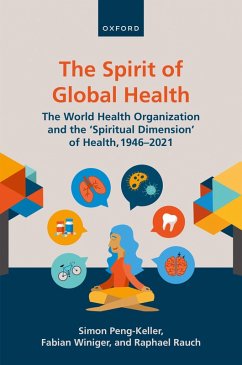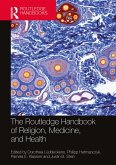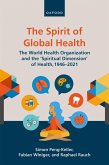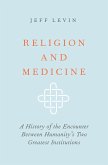Since the beginning of the World Health Organization, many of its staff members, regional offices, member states, and directors-general have grappled with the question of what a 'spiritual dimension' of health looks like, and how it might enrich the health policies advocated by their organisations. Contrary to the wide-spread perception that 'spirituality' is primarily related to palliative care and has emerged relatively recently within the organisation, this study shows that its history is considerably longer and more complex, and has been closely connected to the WHO's ethical aspirations, its quest for more holistic and equitable healthcare, and its struggle with the colonial legacy of international health organisations. While such ideals and struggles silently motivated many of the key actors and policies - such as the provision of universal primary healthcare - which for decades have embodied the organisation's loftiest aspirations, the WHO's official relationship with 'spirituality' advanced in fits, leaps, and setbacks. At times creative and interdisciplinary, at others deeply political, this process was marked by cycles of institutional forgetting and remembering. Rather than as a triumph of religious lobbyists, this book argues, the 'spiritual dimension' of health may be better understood as a 'ghost' that has haunted - and continues to haunt - the WHO as it comes to terms with its mandate of advancing health as a state of 'complete well-being' available to all.
Dieser Download kann aus rechtlichen Gründen nur mit Rechnungsadresse in A, B, BG, CY, CZ, D, DK, EW, E, FIN, F, GR, HR, H, IRL, I, LT, L, LR, M, NL, PL, P, R, S, SLO, SK ausgeliefert werden.









